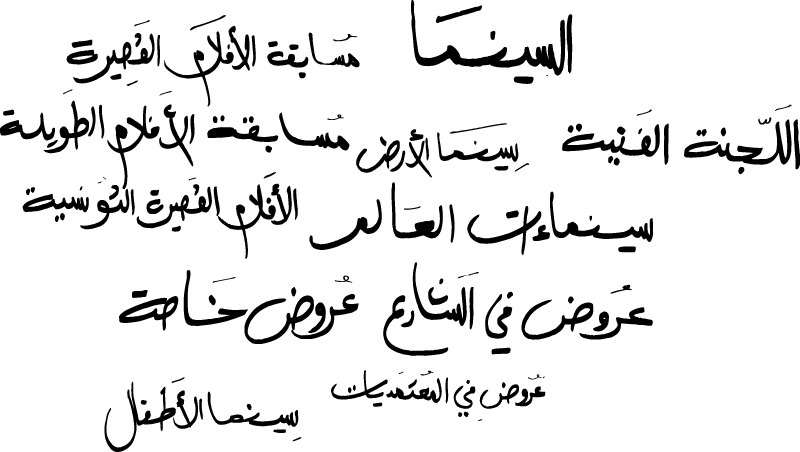
GABES CINEMA FEN propose des films qui laissent libre cours à l’imaginaire ou éclairent un fragment du réel.
Les films en compétition sont des productions exclusivement arabes. Partant
du constat de la très faible circulation des films arabes dans la région,
cette orientation de la sélection est une manière pour nous de susciter
cette rencontre que nous considérons comme nécessaire de propositions
cinématographiques arabes avec notre public de Gabès.
Les sections parallèles sont autant de fenêtres sur des propositions
filmiques diversifiées parfois minoritaires mais toujours exigeantes et
singulières dans leurs manières de nous inviter à expérimenter le monde.
